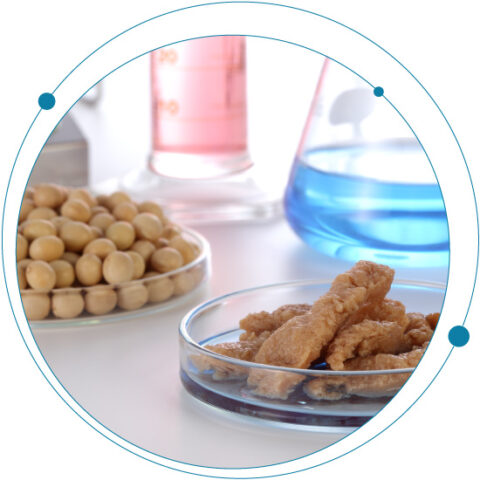 Read time: 2 minutes
Read time: 2 minutes
As we become more conscious about the planet, healthier lifestyles and our duty to protect the environment, attitudes and behaviours are shifting when it comes to food consumption.
‘Fake’ meat and the environment
Nowadays, meat or fish is part of every meal for a lot of people, meaning farming has had to meet (pardon the pun) these demands. To achieve this, most farmers are forced to unnaturally feed livestock to ‘fatten them up’ which is becoming increasingly unsustainable for our environment.1
Luckily, the meat alternatives, plant-based products are becoming more widely available in supermarkets, and even better, more affordable! Some people would argue that the vegetarian lifestyle is a healthier choice to make. Generally, vegetables are good for you and some people would assume plant-based meat is healthier than regular meat…But this might not always be the case.2 Let’s dig into why.
Keeping the ‘fake’ meat experience ‘real’
Yes, plant-based alternatives have become to provide similar, if not the same protein alternatives to meat products.2 However, in order to achieve the real meat experience consumers anticipate, synthetic biology companies carefully investigate the taste and texture these products provide to consumers. To help achieve the correct flavours, additives such as fats and oils are often used. The source of these fat matter as the profiles differ and although some might be beneficial to consumers health, others have the potential to be harmful.2
Testing for lipids in meat products
To ensure consumers know exactly what is in their alternative meat products, it is vital each component in products is quantified and packaging is labelled properly. Using the SCIEX 7500 system to profile and identify the lipid composition of meat and meat alternatives samples, discover how this method can improve consume confidence.
References
- Eco & Beyond: https://www.ecoandbeyond.co/articles/most-environmentally-friendly-meat/
- Vox. The rise of meatless meat, explained: https://www.vox.com/2019/5/28/18626859/meatless-meat-explained-vegan-impossible-burger
- Deals on Health. 20 Remarkable Vegetarian Statistics for 2021: https://dealsonhealth.net/vegetarian-statistics/
RUO-MKT-18-14251-A




0 Comments